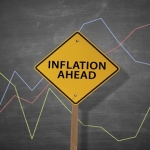Okay, admit it. Whether you’re an ardent supporter or never-Trumper, weren’t you a little nervous Donald Trump’s victory would cause the markets to crash? My clients on both sides of the spectrum were anxious. I even have a friend, who’s an avid Trump supporter, call me and ask if it was too risky to get back into the market.
As we all know, markets hate uncertainty, and on election night, futures dropped like a rock. It was scary, very scary. I happened to be at a mutual fund seminar on election night, and the speaker, who’s a fund manager, didn’t sleep a wink the night before. Even professionals were afraid! But the next morning, something short of amazing happened: The market rebounded and continued to do so through the end of the year. The Dow Jones Industrial Average shot up 1,500 points. Since then, however, the excitement has dissipated, and the markets have been flat.
The question going forward is, “What will happen to the markets and the economy now that Donald Trump has been inaugurated as our 45th president?” The answer is no one really knows, keeping in mind a caveat that presidents have a limited impact on the economy. One main reason is our Constitution grants the power of fiscal responsibility to Congress, not the president. The Federal Reserve System, a quasi-government entity, may have more power over the economy than either Congress or the president. The Fed is responsible for many key aspects of the economy such as monetary policy, economic stability and supervising and regulating banks. And then there is the economy itself. The U.S. Gross Domestic Product (GDP) is around $18 trillion which covers a multitude of financial sectors and is often driven by consumer confidence; that is, people’s optimism in buying things. (70% of our economy’s activity is consumer spending). As you can see, managing the economy through government entities is disparate and complex, and a successful economy isn’t exclusively dependent on one branch of our government.
The stock market, a leading economic indicator, reflects and digests all this information and adjusts accordingly. For instance, an up market usually means good times are ahead, and a down market often precedes a recession. It is a separate entity from the political landscape, and the general trend is upwards with, of course, some down and flat periods, too. The chart below tracks the growth of a dollar invested in the S&P 500 from January 1926 through June 2016.
You can see that the general trend has been up no matter who was president at the time.
Like a baseball manager who often gets the blame or credit for his team’s wins and losses, a president gets the blame or credit for the economy and stock market. But betting your hard-earned savings on how the market will react to Trump occupying the White House is fool’s gold. Back in 2009, many people got out of the stock market because they thought President Obama was going to ruin the economy, and the stock market would never recover. What more do I need to say?
To learn more about Jeffrey Bogart at Sila Wealth Advisory, view his Paladin Registry research report.
Other posts from Jeffrey Bogart
I ran into a friend recently who’s a hairdresser. He’s been in the business now for 50 years...
Retirement is an Artificial Finish Line
I received the following alert on my phone from that New York Times this past weekend: “Today’s women...
Squirrel: The Intelligent Investor
These have not been ordinary times. Since the onset of the Great Recession of 2008, we’ve been experiencing...






